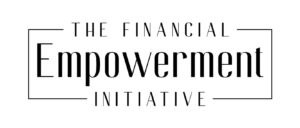
Try to make at least the minimum payments on your debts.
Paying down your debt helps reduce your monthly debt payments. Lower and fewer debt payments will leave you with more money to pay for living expenses.
If you don’t make your payments on time, it will appear on your credit report. A poor credit report may make it difficult when you’re looking for a new job. Some employers look at your credit report before they decide to give you a job.
Once you find a new job, make sure you have a plan to pay off your debt. Set a date by which you want each debt paid off, and stick with your schedule.
Prioritize your debts
Start by making payments on debts for items you need, such as housing or your car. Be sure to pay your heating, electricity and water bills so these services continue.
Then, decide which debts you’ll pay off first by making more than the minimum debt payment. You may choose to pay off smaller debts first, or you may focus on paying off debts with high interest rates.
Contact your creditors
If you’re having trouble making debt payments while unemployed, you may be able to talk to your creditors, that is, the companies that you owe money to.
Your creditors may be able to:
- offer you a lower interest rate
- combine your debts into one loan with a lower overall interest rate
- negotiate lower payments while you’re unemployed
Find tips on contacting your creditors yourself.
Get help from a qualified professional
There are a number of options available to you if you’re having trouble making debt payments.
Get tips on how to choose a financial advisor.
Find out how a credit counselling agency may help with debt.
Discuss your options with a licensed insolvency trustee.
Claiming credit and loan insurance benefits
You may have insurance that will help you manage your debts while unemployed.
This may include:
- credit card balance insurance
- mortgage payment protection insurance
- credit and loan insurance
Usually, it covers your loan payments if you can’t make payments due to job loss, illness, accident or death.
Read the terms and conditions of your policy carefully.
You may not be able to make a claim if you accept a buyout option when you leave your job.
You often have to wait for a certain amount of time after you lose your job before you’re eligible to get benefits. You often have to wait to submit a claim until you’ve held the insurance for a period of time, usually 30 to 90 days.
Make sure you continue to make at least your minimum debt payments until your insurer decides to approve your claim.
Find out how to make an insurance claim.
Avoid further debt
Try to avoid taking on more debt while unemployed. For example, try not to make payments using your credit card when you aren’t able to pay the full amount each month. Avoid buying items on pay-later plans.
To avoid debt, adjust your spending to focus on the things you need. This includes your rent or mortgage, heating and electricity, and groceries. Try to make due with the things you already have. Delay buying new things that you don’t really need until you get a new job.
